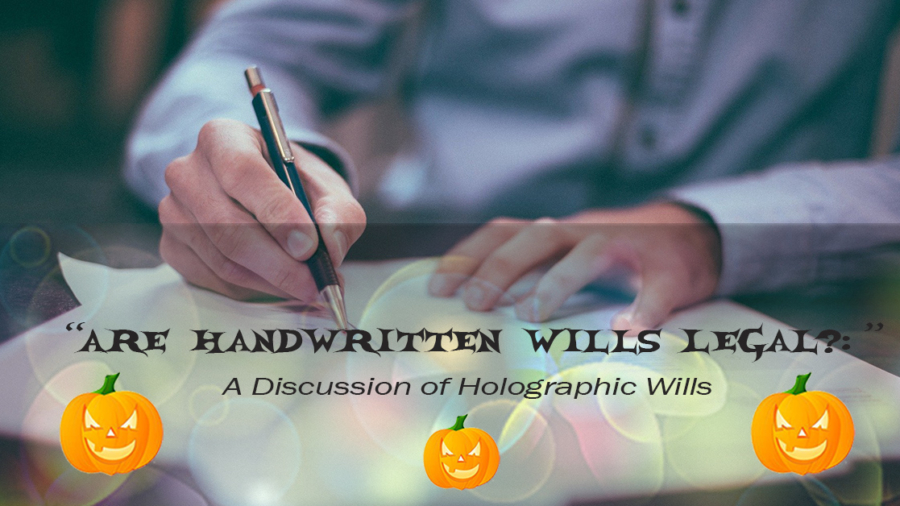“Holograph” is a fancy term for a document written entirely in the author’s handwriting. A “Holographic Will”, therefore, is a Will written entirely in the handwriting of the person making the Will. These Wills are also referred to as a “Dying Man’s Will” because they are sometimes written when death is imminent and without the assistance of an attorney.
Are Holographic Wills Legal?
Yes, a Holographic Will is valid in Texas if the document is wholly in the handwriting of the person making the Will and is signed by them. The policy behind requiring the Will to be “wholly” in a person’s handwriting is to safeguard against fraud and forgery. Like formal typed-written Wills, the Holographic Will must have “testamentary intent”. That means the person making the handwritten document intended it to be a Will—a document that disposes of property after death.
Are Witnesses Required for a Holographic Will?
Witnesses are not required to make a handwritten Will valid. Additionally, a person making a handwritten Will can include a self-proving affidavit with the Will. This affidavit can be signed at the time the Will is made, or later, during the person’s lifetime. A self-proving affidavit must be made before an officer authorized to administer oaths, such as a notary or judge. There are several things the person making a handwritten Will must swear to in this affidavit, including that they were of “sound mind” when they made their Will.
Whether a person had the necessary mental capacity to make a Will is one of the top reasons Wills are contested in court. Although witnesses are not required to make a handwritten Will valid, having witnesses who can swear to the person’s state of mind at the time they made their Holographic Will, could prove useful.
Problems with Holographic Wills
Handwritten Wills are admitted to probate in the same way as typed-written, attorney-assisted Wills. However, these Holographic Wills can cause problems for beneficiaries and heirs. The biggest problem heirs and beneficiaries face is how to interpret instructions in a handwritten Will. Frequently missing from these handwritten Wills is the correct terminology needed to appoint an executor or create an independent administration. Additionally, handwritten Wills are typically written in “stream of consciousness” form, creating instructions that are open to more than one interpretation.
Thus, even if a handwritten Will successfully names an Independent Executor, the executor faces a tough job if their instructions are unclear. In these cases, an additional probate proceeding called a “declaratory judgment” may be required to aid the executor in their job. With a declaratory judgment, the executor obtains a court order construing the terms/instructions in the Will. This order allows the executor to carry out the Will’s instructions under court authority, thereby minimizing or eliminating their personal liability. However, such proceedings increase the costs of probate.
Sometimes a handwritten Will is better than no Will. But for individuals who have time to make an estate plan, consideration should be given to hiring an estate planning attorney. Getting formal legal assistance with making a Will is the best way to ensure a person’s wishes are correctly carried out.
If you would like legal assistance with making a Will, or probating a handwritten Will, here in the Dallas, Plano, McKinney, Frisco, Allen, & Prosper area, contact me , an estate planning attorney and probate attorney for a consultation. In addition to in-person consultations, I am also available by teleconference and videoconference.
